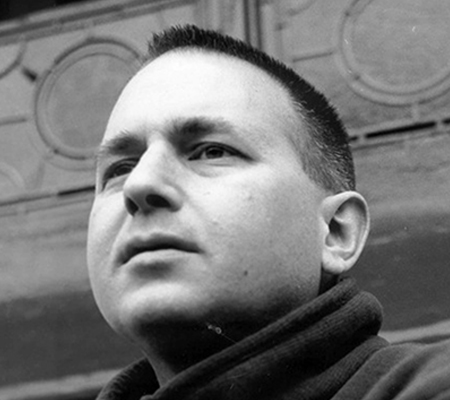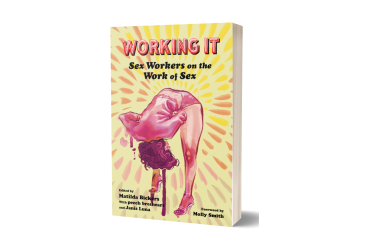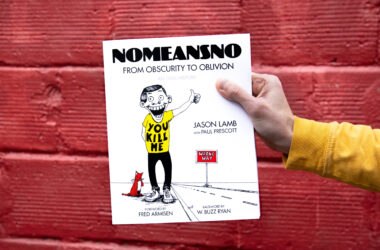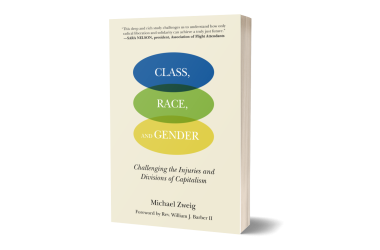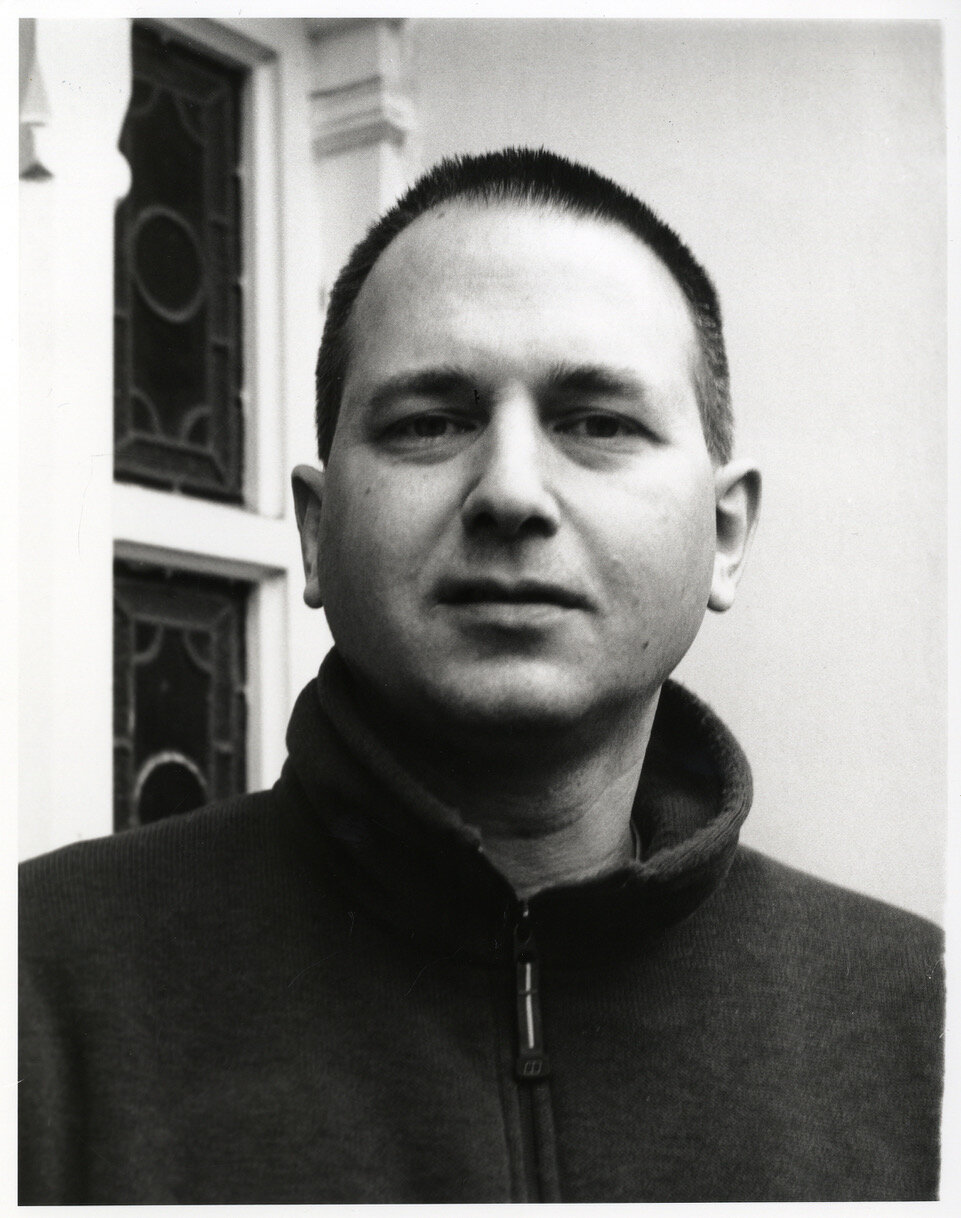
John King is the author of The Football Factory (its 2004 movie adaptation by director Nick Love sold two million DVDs in the UK) plus many more challenging, politically charged novels
Originally published on Boy’s Own
The Football Factory author John King’s new book is about… animal rights and veganism. Irvine Welsh has said: “One of England’s finest writers, John King, has just written his greatest book. It will blow you away.” So we sent Ian Snowball to talk to John for Boy’s Own.
Boy’s Own: What moved you to write Slaughterhouse Prayer? And if there’s a message you want the reader to take from it, what is it?
John King: “I have been vegetarian and then vegan for over thirty-five years, so the idea of a novel coming from an animal-rights position was in my head for a long time, but it was a case of finding the right approach as I wanted to do the subject justice. I have touched on our treatment of animals and how it reflects the human pecking order in other books such as The Prison House, and it had to be a bigger story than just saying ‘meat is wrong’. But really, the message is what moved me to write Slaughterhouse Prayer, the hope that the novel might change some minds.
The message is clear – give up eating meat and dairy. Please. Have a think. Consider the realities and leave the animals alone. It is easy to do this and one of the few areas where an individual can make a difference. Our exploitation of animals is driven by business interests, and while our tastebuds will nag for a while that’s the only barrier. It is great to talk and protest against unfairness, but this is an issue where we could actually change things very quickly. Stop eating meat and dairy now and the cruelty will end. It really is that simple.”
Do you recognise the same John King who wrote books like The Football Factory or Human Punk? Or has your writing style changed/adapted?
“Yes, it’s definitely the same John King. All my books connect in terms of the ideas, although hopefully my writing has improved over time, if maybe more in the sense of developing styles that were already there. Different approaches fit different subjects of course, create their own atmospheres, and with Slaughterhouse Prayer I was looking to take on the style as well as the ideas of The Prison House.
I have always admired the likes of David Bowie and Paul Weller, bands such as The Clash, as they rejected repetition, resisted the pressure and I imagine the rewards offered, went where their creativity took them and were never afraid to experiment, always determined to push forward and experiment. It makes things exciting. I love writing and trying new things.”
Why are the topics like veganism important to you and when did it become of interest?
“When my sister was six she asked my mum what was in a sausage. Mum told her and my sister refused to eat from that day on. This meant I was aware of where meat came from although I didn’t do anything about it for maybe ten years, but it was something I had started to think about and eventually I knew it was the right thing but was lazy and put it off. It is easy to con ourselves that it doesn’t matter what we do. That we are powerless. Worse, it is impossible for most of us to grasp the true horror unless we go looking for it. Out of sight, out of mind.
The crunch came when I was sitting in the yard of a foreign prison feeling very sorry for myself. I was twenty-two and it was a grim old place, and on top of everything else the food was shit, and one day I was sitting in the yard with a bowl of soup or stew – proper gruel from Oliver Twist – and there was this lump of meat in there with a thick rubbery vein sticking out of it and stubble on the side. Feeling sick, I promised that when I was out I would change my ways. There is always someone worse off than us and there was the proof.”
You always manage to drop in some musical references, and in Slaughterhouse Prayer you mention Crass and Conflict. Did you choose these for a reason that aligned to the essence in the story?
“Music is such an important part of our culture and it seems natural to add it to certain books – The Football Factory trilogy, Human Punk, Skinheads in particular. I think music has inspired a lot of contemporary authors, and especially those who come from general population and have little interest in the official canon.
The bands you mention just had to be included in the thread of Slaughterhouse Prayer set in the 1980s. That animal-rights strand of punk is pretty special. True believers standing up for creatures that are beyond marginalised, and back at a time when there was none of the current mainstream interest in veganism. A lot of people were influenced by these songs. A lot of minds changed. It is a core part of those sections and indeed the book, and I have a novella I am working on that looks at those characters in a bit more depth.”
Is there a part of the story that you especially like or has a certain meaning to you?
“It’s hard to break a story down when you have written and woven it all together, but it is always nice writing about places where different people meet and then seeing them through the eyes of a specific character. I am thinking of Tanner in a pub, or down at the allotments. Or maybe the Harry Spalding section. Or towards the end when Tanner is out in the freezing cold. Or that memory of Norfolk and the geese flying in formation and heading south – the same image and phrase I had in The Prison House. My own memories.
I do like the way the Farmer Giles character changed as I was writing the book, as he became a very sympathetic character and that was important for balance plus showing another side to things. It adds to the idea of hating the sin and not the sinner. He is coming to the end of this life and has sent many hundreds of animals to their slaughter, yet he is a scared boy again, a product of tradition and a hard father, someone nailed into a life he maybe regrets. He has behaved as he thinks he must. Being a man. Now he is old and only has his rabbits for friends. The final lines of his story are quite emotional. It is an emotional novel. For me personally, it is my most important.”
Slaughterhouse Prayer is out now published by London Books

